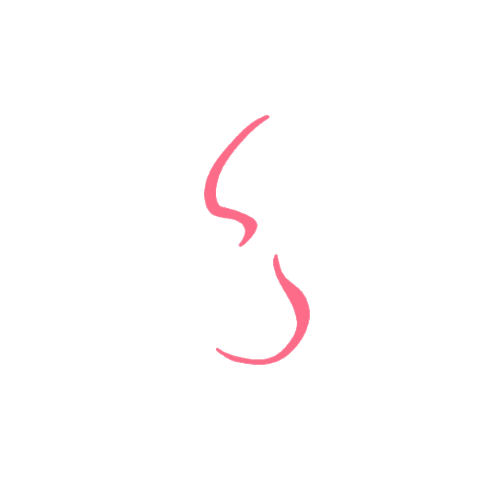How to Calm Anxiety: 14 Tips for Control

Anxiety, including panic disorder, a common mental health condition characterized by excessive worry and heightened stress levels, can feel overwhelming and debilitating. It is a response to a perceived threat. But here’s the good news: there are effective strategies to help you calm excessive worry and reduce stress levels, allowing you to regain control of your life even if you suffer from panic disorder or feel threatened. By understanding the causes and symptoms of excessive worry, you can take proactive steps towards managing anxiety and improving your overall well-being. Excessive worry can lead to elevated stress levels and impact brain chemistry. Additionally, it is important to be mindful of the effects of caffeine on anxiety levels.
Therapy, medication, and lifestyle changes are powerful tools for people with anxiety disorder to manage stress levels and reduce alcohol consumption. Therapy provides a safe space for people with anxiety disorders to explore their thoughts and emotions while learning coping mechanisms. This can be especially helpful for individuals who may turn to alcohol as a way to manage their anxiety. Being part of a therapy group can provide additional support and understanding from others who are going through similar experiences. Medication can help regulate brain chemistry, reducing anxiety symptoms. Lifestyle changes such as exercise, mindfulness practices, healthy sleep habits, and caffeine consumption contribute to long-term anxiety management for people in a group setting.
Remember, you’re not alone in this battle against anxiety. With the right support and techniques, people can find relief and live a fulfilling life, even if they consume caffeine.
Recognizing Symptoms of Anxiety and Panic Attacks
Recognizing the symptoms of anxiety and panic attacks in people who consume caffeine is crucial for early intervention and effective treatment. By understanding the physical and emotional signs, people can identify when anxiety is taking hold and take steps to calm themselves down. Caffeine can exacerbate these symptoms, so it’s important for individuals to be mindful of their caffeine intake. Let’s dive into some common symptoms of anxiety and panic attacks to help people better recognize them.
Common Symptoms of Anxiety
Anxiety is a condition that affects people, characterized by excessive worry, restlessness, and difficulty concentrating. It can manifest in various ways for people, both physically and emotionally. Here are some common symptoms:
Excessive worrying: People feeling constantly on edge or worrying excessively about everyday situations.
Restlessness: Being unable to relax or feeling restless.
Difficulty concentrating: Many people are finding it hard to focus or experiencing mind blanks.
Irritability: Feeling easily irritated or becoming agitated over small things.
Muscle tension: Tightness in muscles, often leading to headaches or body aches.
Sleep disturbances: Having trouble falling asleep, staying asleep, or experiencing restless sleep.
These symptoms may vary from person to person, but they often interfere with daily life activities and cause distress.
Understanding Panic Attacks
Panic attacks are intense episodes that come on suddenly without warning. They usually reach their peak within minutes but can last longer in some cases. During a panic attack, you may experience the following symptoms:
Rapid heartbeat: Your heart may start pounding rapidly or feel like it’s racing.
Shortness of breath: You may struggle to catch your breath or feel like you’re suffocating.
Chest pain or discomfort: A tightness or pressure sensation in your chest may occur.
Sweating: Profuse sweating even when not engaging in physical activity.
Trembling or shaking: Uncontrollable trembling or shaking of the body.
Dizziness or lightheadedness: Feeling faint, dizzy, or lightheaded.
Nausea or stomach distress: Upset stomach, queasiness, or even vomiting.
Fear of losing control: A sense of impending doom or fear of going crazy.
Fear of dying: Feeling like you’re about to die or that something terrible is happening.
Panic attacks can be terrifying and overwhelming, often leading individuals to seek immediate medical attention.
The Importance of Recognizing Symptoms
Recognizing the symptoms of anxiety and panic attacks is crucial for several reasons:
Early intervention: Identifying symptoms early allows for prompt intervention and treatment, preventing the condition from worsening.
Effective treatment: Understanding the signs helps healthcare professionals provide appropriate treatment tailored to your needs.
Reducing distress: Recognizing symptoms allows you to take steps to calm yourself down and manage anxiety more effectively.
Seeking support: Knowing the signs enables you to reach out to loved ones for support and understanding.
By recognizing these symptoms, you take a significant step towards managing your anxiety and seeking help when needed.
Seeking Professional Help for Untreated Anxiety
Untreated anxiety can have a significant impact on your daily life and overall well-being. It’s important to recognize that excessive worry, fear, and panic attacks are not something you have to face alone. Seeking professional help from a mental health professional can provide valuable guidance and support in managing your anxiety.
It’s crucial to consult with a qualified health professional who specializes in anxiety disorders. They have the knowledge and expertise to assess your symptoms accurately and develop an individualized treatment plan tailored to your needs.
Therapy: A Pathway to Calmness
One of the most effective treatments for anxiety disorders is therapy, specifically cognitive-behavioral therapy (CBT). CBT focuses on identifying negative thought patterns and behaviors that contribute to anxiety and teaches strategies to challenge and replace them with more positive and rational thoughts.
During CBT sessions, you’ll work closely with a therapist who will help you understand the root causes of your anxiety. They will guide you through various techniques such as relaxation exercises, breathing techniques, and exposure therapy. These techniques aim to reduce anxiety symptoms gradually by exposing you to feared situations in a controlled manner.
Therapy provides a safe space for individuals struggling with anxiety to express their fears, worries, and concerns openly without judgment. It equips them with coping mechanisms that empower them to manage their symptoms effectively in everyday life.
Medication: When Extra Support is Needed
In some cases, medication may be prescribed alongside therapy for treating severe or persistent anxiety symptoms. Medications such as selective serotonin reuptake inhibitors (SSRIs) or benzodiazepines can help alleviate the physical and psychological effects of anxiety.
It’s important to note that medication should be prescribed by a qualified doctor or psychiatrist after a thorough evaluation of your symptoms. They will consider factors such as the severity of your anxiety, medical history, potential side effects, and any interactions with other medications you may be taking.
Medication can provide short-term relief while you work on developing long-term coping strategies through therapy. It’s essential to follow your doctor’s instructions carefully and communicate any concerns or side effects you may experience.
The Importance of Seeking Help
Seeking professional help for untreated anxiety is crucial for several reasons:
Expert Guidance: Mental health professionals have the knowledge and expertise to accurately diagnose anxiety disorders and develop an appropriate treatment plan tailored to your specific needs.
Validation: Talking to a professional about your anxiety can provide validation and reassurance that what you’re experiencing is real and treatable. This validation alone can help alleviate some of the burden that comes with anxiety.
Support System: A mental health professional can act as an invaluable support system throughout your journey towards managing anxiety. They are there to listen, guide, and offer coping strategies when things get tough.
Holistic Approach: Seeking professional help allows you to take a holistic approach to managing your anxiety by combining therapy, medication (if necessary), self-care practices, and lifestyle changes.
Improved Quality of Life: With proper treatment, individuals with anxiety disorders often experience significant improvements in their overall well-being, relationships, work performance, and ability to engage in activities they enjoy.
Remember that seeking help for untreated anxiety is not a sign of weakness but rather a courageous step towards taking control of your mental health. Don’t hesitate to reach out to a mental health professional or talk to a trusted friend or family member who can support you through this process.
Quick Tips for Calming Anxiety in the Moment
Finding quick and effective ways to calm yourself down in the moment can make a world of difference. Here are some simple yet powerful techniques that can help you regain control and find relief during moments of heightened anxiety:
Deep Breathing Exercises
One of the most accessible and effective ways to calm anxiety is through deep breathing exercises. When we’re anxious, our breath tends to become shallow and rapid, which only exacerbates our feelings of stress. By consciously slowing down our breath and taking deep, diaphragmatic breaths, we activate the body’s relaxation response.
To practice deep breathing, find a comfortable position and take a slow breath in through your nose, counting to four. Hold your breath for a moment at the top, then exhale slowly through your mouth for another count of four. Repeat this process several times until you start to feel more centered and grounded.
Engage in Physical Activity
Engaging in physical activity is not only beneficial for our overall well-being but can also be incredibly helpful in reducing anxiety. When we exercise, our bodies release endorphins – chemicals that act as natural mood elevators and pain relievers. These endorphins promote relaxation, reduce tension, and improve our overall sense of well-being.
Whether it’s going for a brisk walk around the block or doing a quick workout routine at home, getting your body moving can provide an immediate sense of relief from anxious thoughts. Find an activity that you enjoy and make it a regular part of your routine to help manage anxiety effectively.
Practice Grounding Techniques
Grounding techniques are strategies that help redirect your focus away from anxious thoughts and bring you back into the present moment. They involve using your senses or repeating calming affirmations to anchor yourself in reality rather than dwelling on worries about the future or past.
One grounding technique involves focusing on each of your senses. Take a moment to notice five things you can see, four things you can touch, three things you can hear, two things you can smell, and one thing you can taste. By engaging your senses in this way, you bring yourself back to the present moment and shift your attention away from anxious thoughts.
Another grounding technique is repeating calming affirmations or mantras. Choose a phrase that resonates with you, such as “I am safe and in control” or “This too shall pass.” Repeat it silently or out loud to yourself whenever anxious thoughts arise. This practice helps reframe your mindset and reminds you that anxiety is temporary.
Find Distractions and Humor
Sometimes the best way to calm anxiety is by finding distractions that take your mind off of worrisome thoughts. Engage in activities that bring you joy and provide a sense of escape from anxious moments. It could be reading a book, watching a funny video, playing a game, or spending time with loved ones.
Humor can also be an excellent tool for shifting your focus away from anxiety. Find something that makes you laugh – whether it’s a funny meme or recalling a humorous memory – and allow yourself to indulge in laughter. Laughter releases endorphins and helps reduce stress hormones, providing immediate relief during anxious situations.
Remember that these techniques may not completely eliminate anxiety but rather offer support in managing it effectively. Taking just a few minutes to pause and implement these strategies can make all the difference.
A Step-by-Step Approach to Taking Control of Anxiety
Identifying triggers that contribute to your anxiety allows you to develop coping mechanisms specific to those situations.
Anxiety can be triggered by various factors, such as social situations, work-related stress, or personal challenges. It’s essential to identify these triggers so you can better understand the root causes of your anxiety. By recognizing what specifically contributes to your anxious feelings, you can begin developing effective coping mechanisms tailored to those situations.
One way to identify triggers is by keeping a journal. Take note of the events, people, or circumstances that precede your feelings of anxiety. Look for patterns and commonalities among these occurrences. For example, if public speaking consistently makes you anxious, it may indicate a fear of judgment or performance anxiety. Once you have a clear understanding of your triggers, you can start working on strategies to manage them effectively.
Creating a structured routine helps establish stability and reduces uncertainty, which often triggers anxiety
Anxiety thrives in uncertainty and chaos. Establishing a structured routine provides stability and predictability in your daily life. Having a plan and knowing what to expect can help alleviate some of the anxiety associated with the unknown.
Start by creating a schedule that includes regular activities such as waking up at the same time each day, setting aside dedicated work hours or study time, and incorporating breaks for relaxation or self-care. Stick to this routine as much as possible, even on weekends or days off.
Another aspect of establishing structure is setting achievable goals and breaking them down into smaller tasks. This approach helps prevent overwhelm and gives you a sense of control over your responsibilities. Prioritize tasks based on importance and tackle them one at a time rather than attempting everything at once.
Maintaining a healthy lifestyle through regular exercise, balanced nutrition, and sufficient sleep can support overall well-being
Taking care of your physical health plays an integral role in managing anxiety levels. Regular exercise has been shown to reduce anxiety and improve mood by releasing endorphins, which are natural mood boosters. Find an activity you enjoy, whether it’s going for a walk, practicing yoga, or participating in a team sport. Aim for at least 30 minutes of moderate-intensity exercise most days of the week.
In addition to exercise, proper nutrition is vital for overall well-being. Avoid excessive caffeine and sugar, as they can contribute to feelings of restlessness and exacerbate anxiety symptoms. Instead, focus on consuming a balanced diet rich in fruits, vegetables, whole grains, and lean proteins. These foods provide essential nutrients that support brain health and help regulate mood.
Furthermore, getting enough sleep is crucial for managing anxiety. Lack of sleep can amplify anxious thoughts and make it harder to cope with stress. Establish a bedtime routine that promotes relaxation and creates an environment conducive to quality sleep. Limit exposure to screens before bed and create a calm atmosphere in your bedroom.
Building a strong support system of friends, family, or support groups provides a valuable network during challenging times
Having a reliable support system is essential when dealing with anxiety. Surrounding yourself with understanding and supportive individuals can provide comfort during challenging times. Reach out to trusted friends or family members who are willing to listen without judgment.
Support groups can also be beneficial as they offer an opportunity to connect with others who may be experiencing similar challenges. Sharing experiences and coping strategies within these groups can provide validation and new perspectives on managing anxiety.
Remember that building a support system takes time and effort. It’s important to nurture these relationships by being available for others when they need support as well.
Natural Remedies for Managing and Reducing Anxiety
If you’re looking for natural ways to calm anxiety, there are several remedies that can help alleviate symptoms and promote relaxation. Here are some effective strategies to consider:
Herbal Supplements: Chamomile, Lavender, and Valerian Root
Herbal supplements have been found to have calming properties that can reduce anxiety symptoms. Chamomile is a popular herb known for its soothing effects on the mind and body. It can be consumed as a tea or taken in supplement form. Lavender is another herb that has been used for centuries to promote relaxation and reduce stress. Its pleasant aroma can be inhaled through essential oils or used in bath products. Valerian root is a natural sedative that can help with sleep disorders often associated with anxiety.
Chamomile: Promotes relaxation and reduces anxiety.
Lavender: Soothes the mind and body, reducing stress.
Valerian Root: Acts as a natural sedative, aiding sleep.
Stress-Reducing Activities: Yoga, Meditation, Aromatherapy
Incorporating stress-reducing activities into your daily routine can significantly help manage anxiety levels. Yoga combines physical postures with deep breathing exercises, promoting relaxation and reducing tension in the body. Meditation involves focusing your attention and eliminating the stream of thoughts that may contribute to anxiety. Aromatherapy utilizes essential oils with calming scents like lavender or chamomile to induce relaxation.
Yoga: Combines physical postures with deep breathing exercises.
Meditation: Focuses attention and eliminates anxious thoughts.
Aromatherapy: Uses calming scents like lavender or chamomile.
Adequate Sleep Hygiene
Getting enough sleep is crucial for maintaining good mental health and managing anxiety effectively. Practicing good sleep hygiene involves adopting habits that promote quality sleep. This includes establishing a regular sleep schedule, creating a comfortable sleep environment, avoiding electronic devices before bed, and practicing relaxation techniques like deep breathing or listening to soothing music.
Regular sleep schedule: Establishing consistent sleeping patterns.
Comfortable sleep environment: Creating a relaxing atmosphere conducive to sleep.
Avoiding electronic devices: Reducing exposure to blue light that can disrupt sleep.
Relaxation techniques: Deep breathing exercises or calming music.
Limit Caffeine Intake
Excessive caffeine consumption can exacerbate anxiety symptoms. Caffeine is a stimulant that can increase heart rate, trigger restlessness, and even induce panic attacks in some individuals. It’s important to be mindful of your caffeine intake and consider reducing or eliminating it if you experience anxiety.
Reduce caffeine intake: Be mindful of coffee, tea, energy drinks, and chocolate.
Monitor symptoms: Observe how anxiety levels may change with caffeine consumption.
By incorporating these natural remedies into your routine, you can effectively manage and reduce anxiety symptoms. Remember that everyone’s experience with anxiety is unique, so it may take some time to find the strategies that work best for you. It’s always a good idea to consult with a healthcare professional if you have any concerns or questions about managing your anxiety naturally.
Exploring Relaxation Techniques and Mindfulness
Progressive muscle relaxation is a technique that involves tensing and releasing different muscle groups in your body to promote physical relaxation and relieve tension. This practice can be done anywhere, whether you’re sitting at your desk or lying in bed. Start by focusing on one muscle group, such as your hand, and tense it for a few seconds before releasing the tension completely. Move on to another muscle group, like your arm or leg, and repeat the process. By consciously relaxing each part of your body, you can help alleviate anxiety and promote a sense of calm.
Guided imagery is another effective technique for calming anxiety. It involves using visualization techniques to create calming mental images that help reduce stress and anxiety. Close your eyes and imagine yourself in a peaceful setting, such as a serene beach or a lush forest. Engage all your senses by imagining the sound of waves crashing or the smell of fresh flowers. By immersing yourself in these calming mental images, you can shift your focus away from anxious thoughts and induce a state of relaxation.
Mindfulness practices are also beneficial for managing anxiety. Mindfulness involves being fully present in the moment without judgment or attachment to thoughts or emotions. It helps redirect our attention away from anxious thoughts about the past or future and brings us back to the present moment. One way to practice mindfulness is through meditation. Find a quiet space where you can sit comfortably, close your eyes, and focus on your breath as it goes in and out. Notice any sensations in your body or sounds around you without getting caught up in them.
Engaging in hobbies or activities that bring joy and provide a sense of purpose can be an effective form of mindfulness as well. Whether it’s painting, playing an instrument, gardening, or cooking, find something that allows you to fully immerse yourself in the present moment while bringing you happiness. For example:
If painting brings you joy, set aside some time each day to create art. Focus on the colors, textures, and brushstrokes as you let go of any anxious thoughts.
If playing an instrument is your passion, dedicate a few minutes each day to practice. Pay attention to the melodies and rhythms as you lose yourself in the music.
If gardening is your thing, spend time tending to your plants and connecting with nature. Feel the soil in your hands and notice the beauty of each flower or leaf.
By engaging in these activities mindfully, you can cultivate a sense of calm and find relief from anxiety.
Achieving Calmness in the Face of Anxiety
Congratulations! You’ve made it to the end of this blog post, and by now you should have a better understanding of how to calm anxiety. Remember, anxiety is something many people experience, and you are not alone in this journey. It’s important to recognize the symptoms and seek professional help if needed. But don’t worry, there are also plenty of quick tips and natural remedies that can help you manage anxiety in the moment.
Now that you have a step-by-step approach to taking control of your anxiety, it’s time to put these strategies into action. Start incorporating relaxation techniques and mindfulness into your daily routine. Take small steps towards managing your anxiety and remember that progress takes time. You’ve got this!
FAQs
How long does it take for natural remedies to reduce anxiety?
Natural remedies for anxiety can vary in effectiveness from person to person. While some individuals may experience immediate relief, others may need more time for these remedies to take effect. It’s important to be patient and consistent with their use, as results may vary depending on factors such as individual physiology and the severity of anxiety symptoms.
Can I manage my anxiety without professional help?
While self-help strategies can be beneficial for managing mild cases of anxiety, seeking professional help is recommended for those experiencing moderate to severe symptoms or prolonged distress. Mental health professionals can provide guidance tailored specifically to your needs, offer evidence-based treatments, and support you throughout your journey towards managing anxiety effectively.
Are relaxation techniques really effective in reducing anxiety?
Yes! Relaxation techniques such as deep breathing exercises, progressive muscle relaxation, meditation, and guided imagery have been proven effective in reducing symptoms of anxiety. These techniques help activate the body’s relaxation response, promoting a sense of calmness and reducing stress levels.
Is medication necessary for treating anxiety?
Medication can be an effective treatment option for managing anxiety disorders. However, it’s important to consult with a healthcare professional who can evaluate your specific situation and determine whether medication is appropriate for you. They will consider factors such as the severity of symptoms, impact on daily functioning, and potential risks and benefits of medication.
Can anxiety be completely cured?
While there is no one-size-fits-all answer to this question, many individuals are able to effectively manage their anxiety and lead fulfilling lives. With the right combination of self-help strategies, professional support, and lifestyle adjustments, it is possible to greatly reduce anxiety symptoms and improve overall well-being. Remember that everyone’s journey is unique, so focus on progress rather than perfection.
Share:
Social Media
Most Popular

Post-Workout Beauty Routine: Hair & Skincare Hacks

No-Bake Caramel Brownie Bars

Boosting Immunity: Essential Vitamins & Natural Remedies

Crispy Roasted Chickpeas
Subscribe To Our Weekly Newsletter
No spam, notifications only about new post, updates.
Categories
Related Posts

Post-Workout Beauty Routine: Hair & Skincare Hacks
Sweat smarter! Discover the best post-workout hair and skincare hacks for women to keep your skin glowing and hair fresh after exercise.

No-Bake Caramel Brownie Bars
Indulge in these rich, no-bake caramel brownie bars! Packed with chocolatey goodness and a gooey caramel layer, they make the perfect guilt-free dessert.

Boosting Immunity: Essential Vitamins & Natural Remedies
Discover how to strengthen your immune system with essential vitamins and natural remedies. Learn how women can boost their immunity naturally for better health and well-being.

Crispy Roasted Chickpeas
Craving a healthy, crunchy snack? Try these crispy roasted chickpeas! Packed with protein and fiber, they make the perfect guilt-free munchies.


